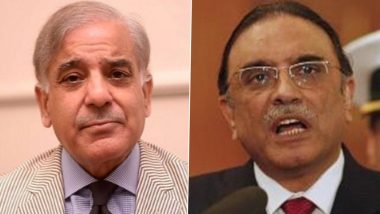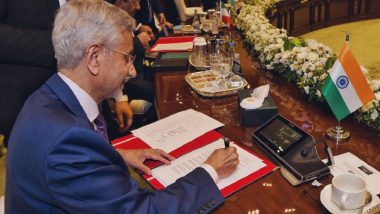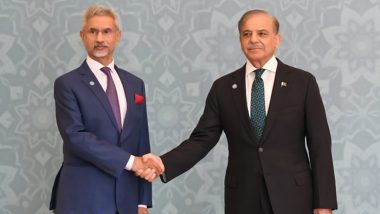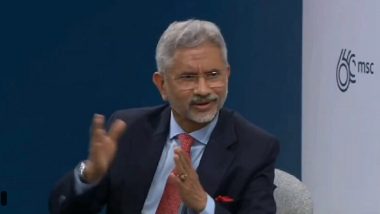Islamabad, February 21: Pakistan's two major parties, the Pakistan Muslim League-Nawaz (PML-N) and the Pakistan Peoples Party (PPP) have finally reached an agreement to form a coalition government, ending days of negotiations following an inconclusive national election as no party secured a simple majority, Geo News reported.
Following much uncertainty post-polls, top leaders from the PPP and PML-N confirmed that they were once again joining forces to form the government "in the nation's best interest." Bilawal confirmed that Shehbaz Sharif would be the coalition's candidate for prime minister and Asif Ali Zardari would be the joint candidate for the country's president. Pakistan Election Results 2024: Electoral Body Delays Notifying Results of Majority of PTI-Backed Independents, Voters Express Concern.
"The Pakistan Peoples Party and the Pakistan Muslim League-Nawaz now have complete numbers and we are in the position to form the next government," PPP Chairman Bilawal Bhutto-Zardari told a press conference. He added that both parties would form the next government to pull the country out of the ongoing crises and affirmed hope that they would be able to deliver.
"We have come to terms on the point that we have to ensure Pakistan's success for the coming generations," he added. Responding to a question about whether the PPP was getting any portfolios, Shehbaz said that the Bilawal-led party hasn't demanded any ministry from the first day, Geo News reported. Pakistan Elections Results 2024: Two Killed, 14 Injured in Firing During Vote Recount in Hub City.
"Parleys take place between two parties and issues are resolved through [mutual consultation]. It doesn't mean that we accept their demands or they accept ours; they have their views but reaching a middle point is the real political success," he said.
No political party secured a simple majority in the February 8 elections, forcing parties to join hands in their bid to come into power, but the delay of an agreement had raised eyebrows. After the Feb 8 polls, the PTI-backed independent candidates controlled the most National Assembly seats (92) followed by the PML-N (79) and the PPP (54).
While parties were wheeling and dealing over the government formation, the Pakistan Tehreek-e-Insaf (PTI) had allied with the Sunni Ittehad Council (SIC) to ensure it gets the required numbers through reserved seats in the assemblies, Geo News reported. However, the PPP chief told reporters that the SIC did not have sufficient numbers to form the next government in the Centre.




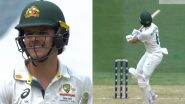








 Quickly
Quickly









